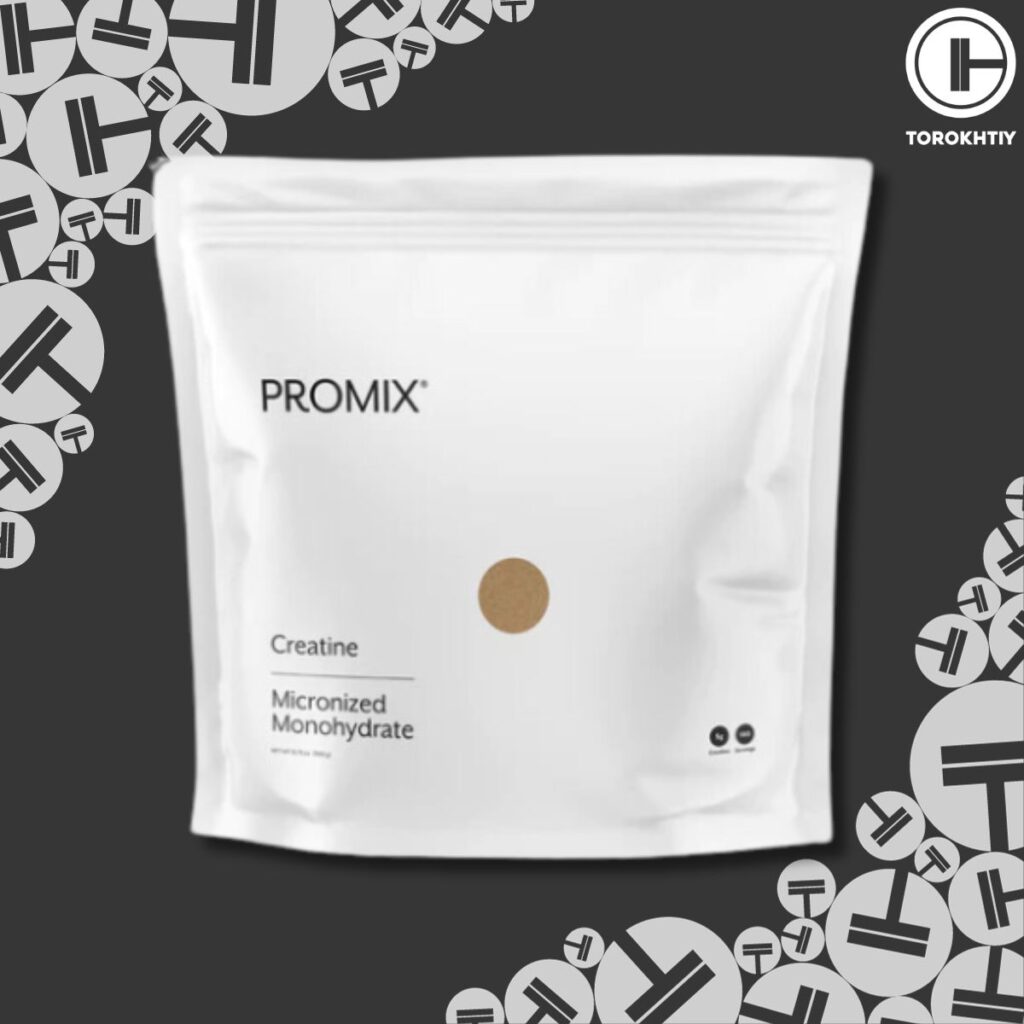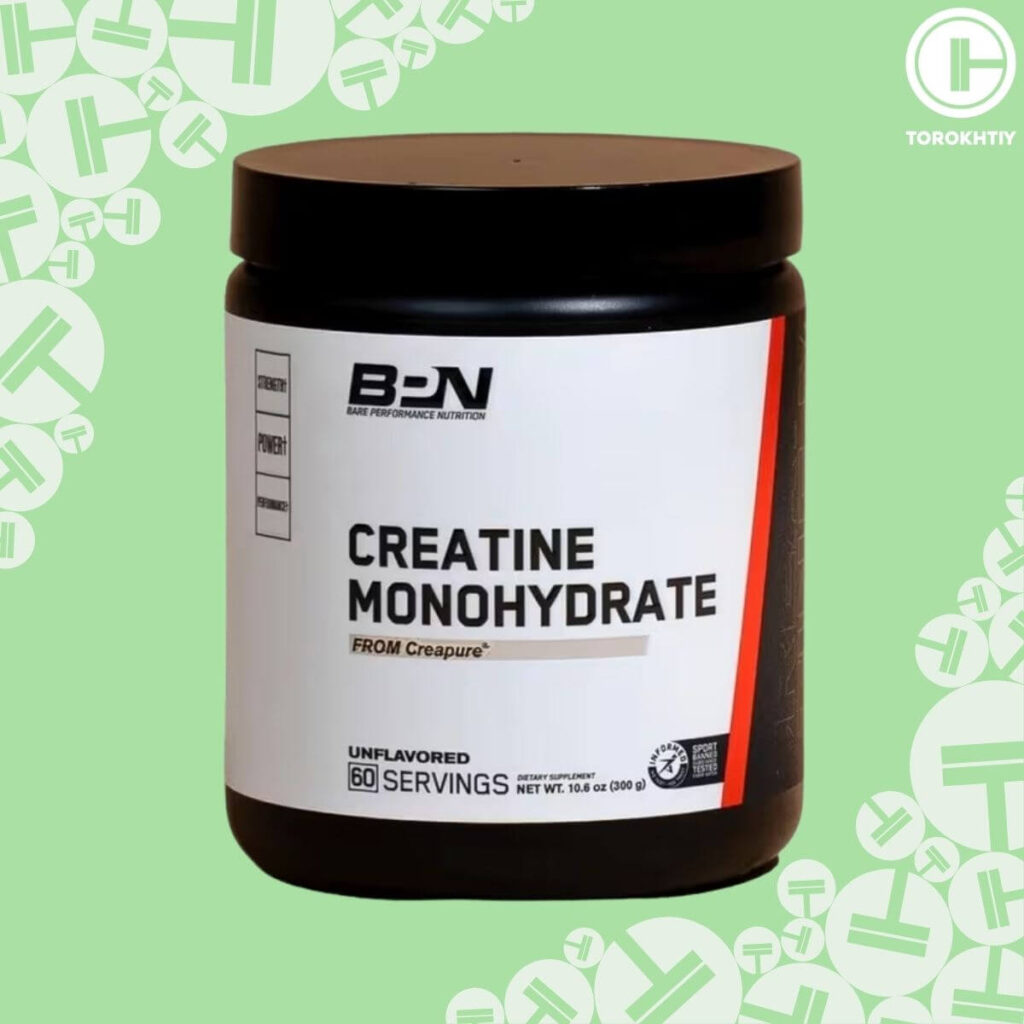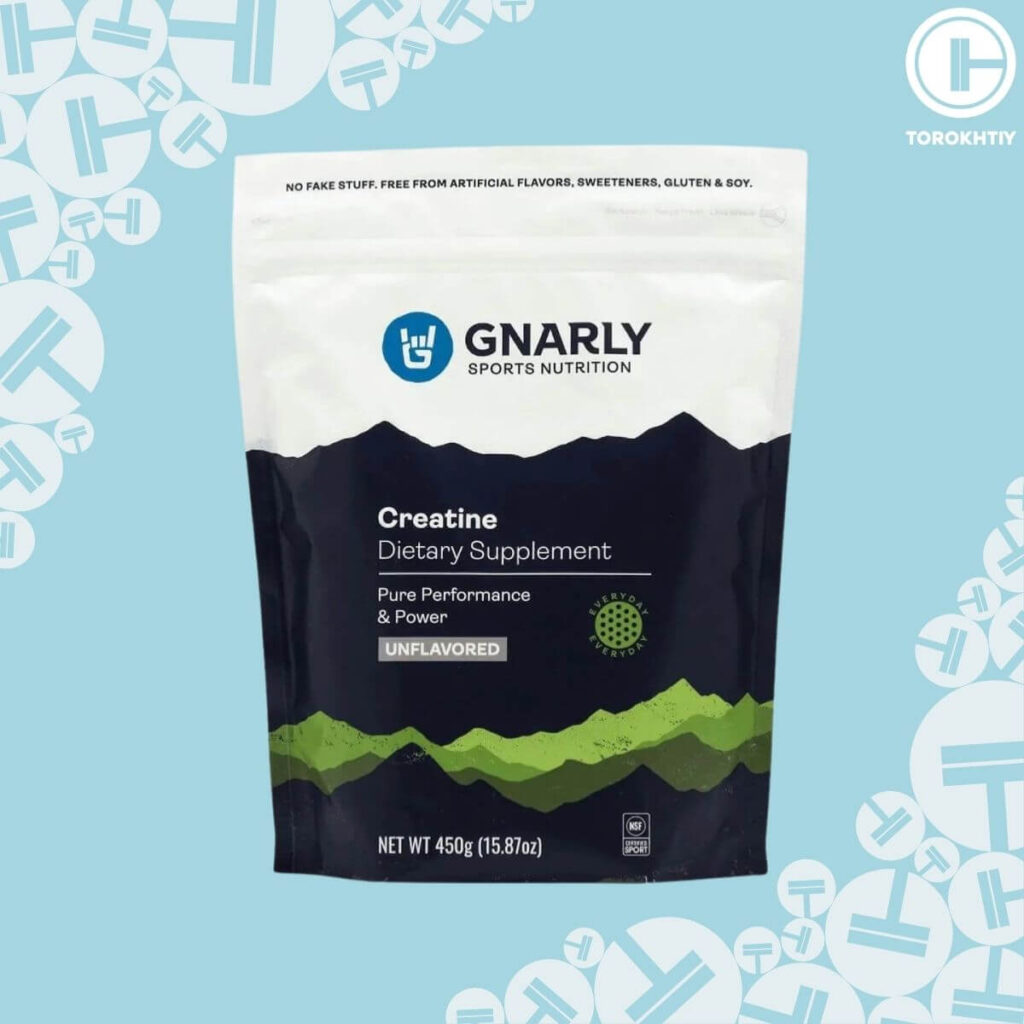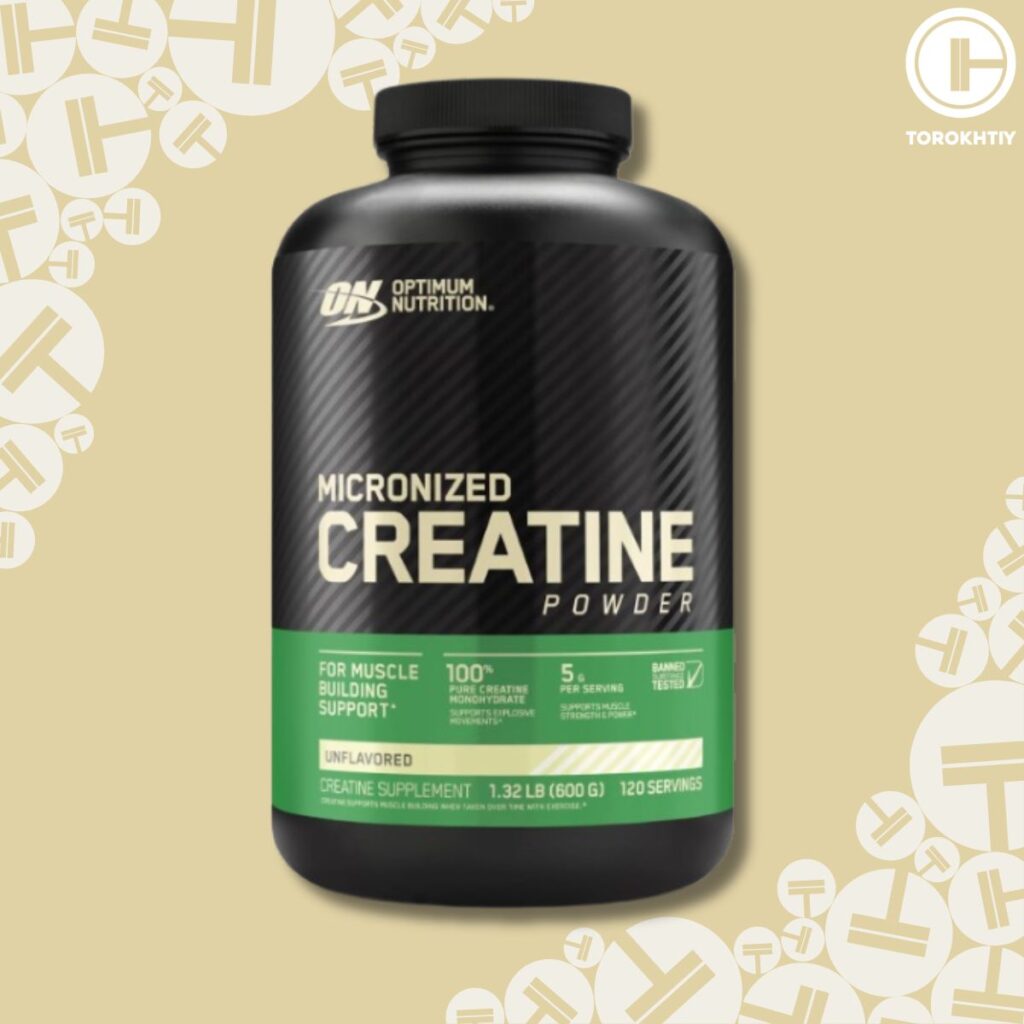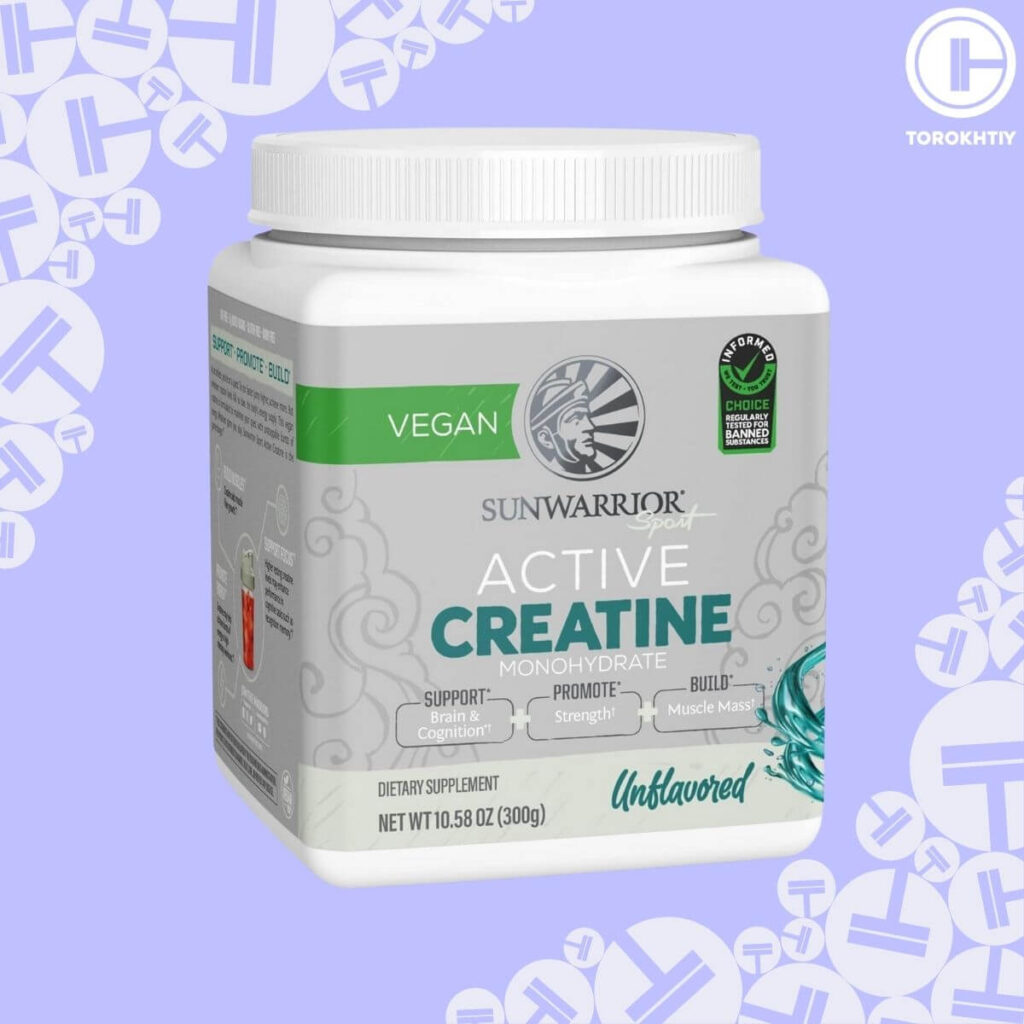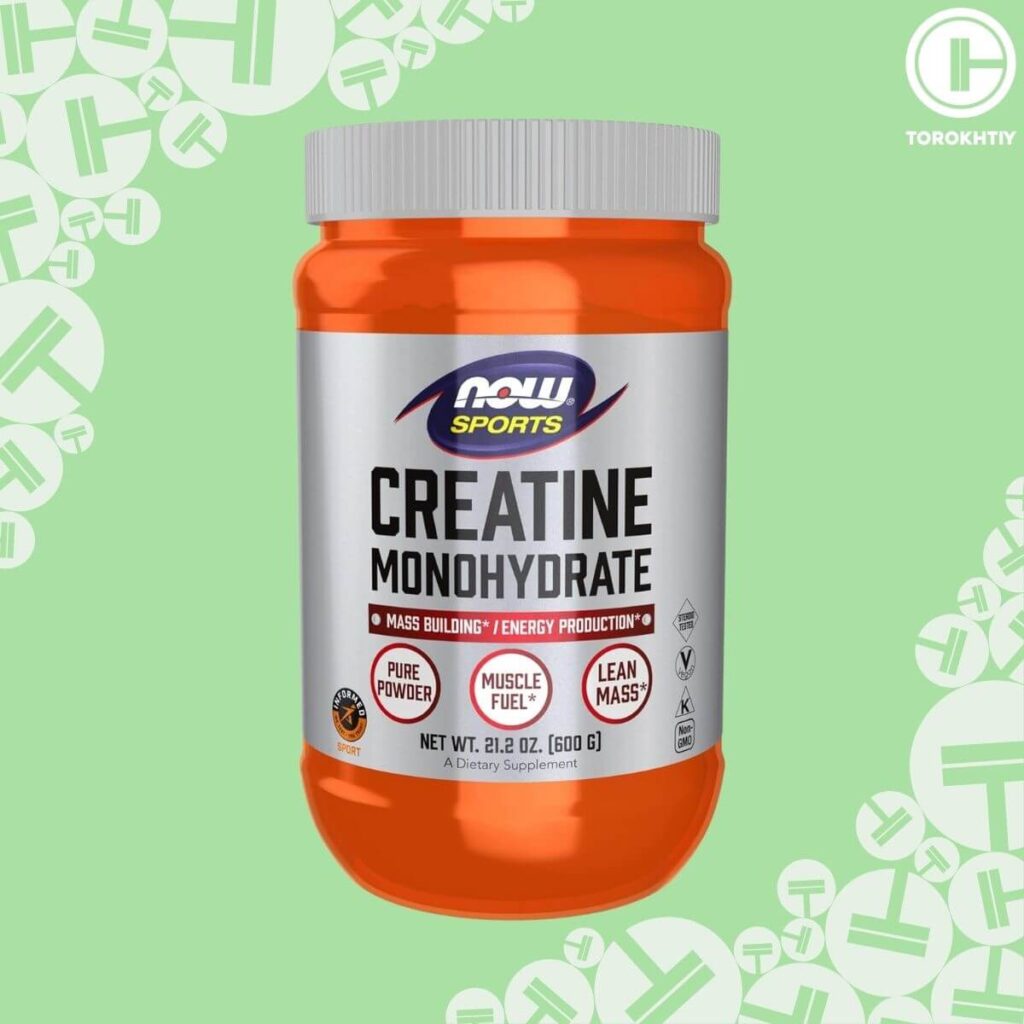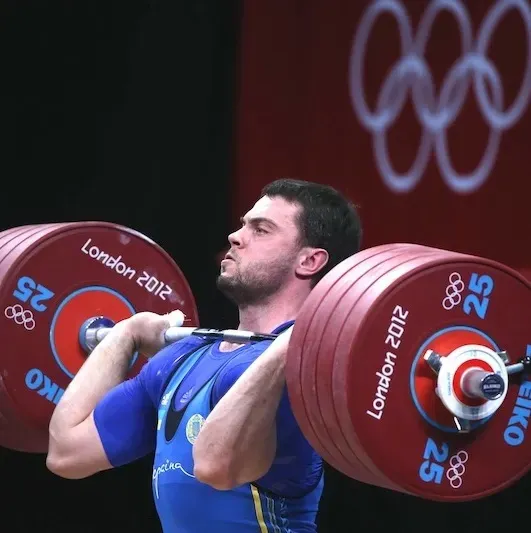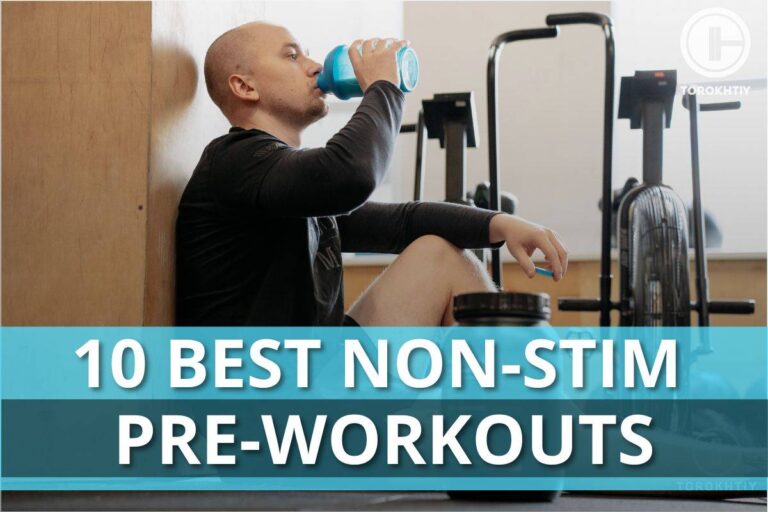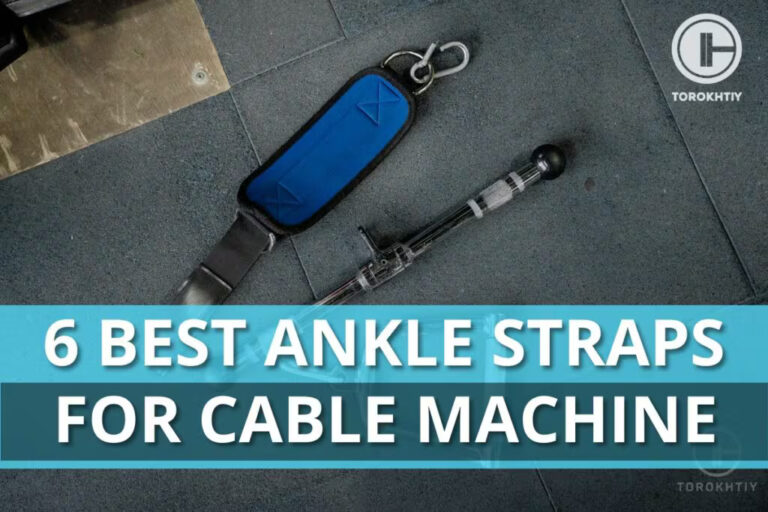6 Best Creatine Supplements for Teens in 2026
The best creatine for teens must meet a key requirement for this supplement to provide benefits while minimizing potential health risks. In this article, we will look at the 6 best creatine that meet this requirement, and also answer a key question that many teens and their parents have — “Is creatine safe for teens”?
In a hurry?
In a hurry and can’t keep reading? How about you check out the PROMIX Creatine Monohydrate.
Promix creatine is about micronized form for better dissolving in liquid, one of the lowest prices per serving in the market, certification from NSF Certified for Sport® and large package that will last for a long time.
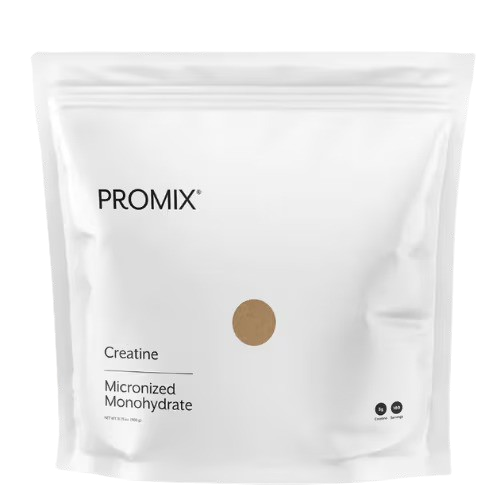
Our expert team of coaches, professional athletes, medical professionals, and nutritionists has assessed 20 creatine monohydrate products for teens to bring you 6 of the finest options.
The products were subjected to an in-depth analysis across 5 key factors, with our team spending 6 weeks testing most of them. In addition to our practical evaluations, we’ve also reviewed hundreds of online user reviews. We continually refresh our list, so feel free to leave a comment, share your insights, and join the conversation!
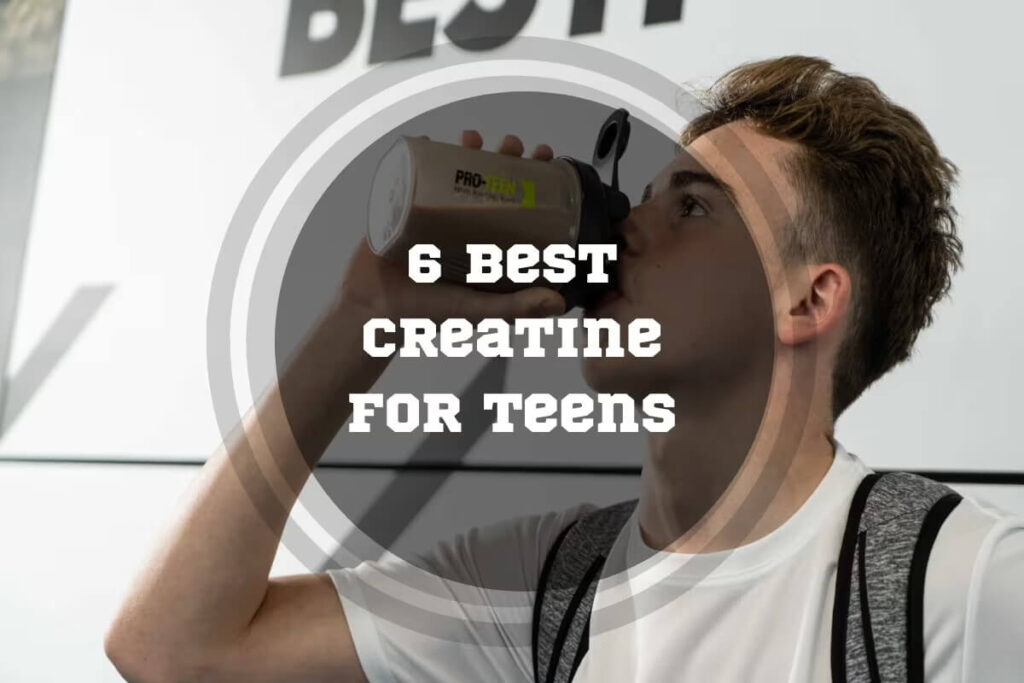
Top 6 Best Creatine for Teens Reviewed
- Promix Creatine — Top Pick
- BPN Creatine — Runner-Up
- Gnarly Creatine
- Optimum Nutrition Creatine
- Sunwarrior Creatine
- NOW Sports Creatine
| Product | Total | Creatine Type | Solubility | Nutrition Label Transparency | Taste | Value for Money |
|---|---|---|---|---|---|---|
| Promix | 48 | 9.5 | 9.5 | 10 | 9 | 10 |
| BPN | 48 | 10 | 9.5 | 10 | 9 | 9.5 |
| Gnarly | 47.5 | 10 | 9 | 10 | 9 | 9.5 |
| Optimum Nutrition | 47.5 | 9.5 | 9.5 | 10 | 9 | 9.5 |
| Sunwarrior | 47 | 9.5 | 9 | 10 | 9 | 9.5 |
| NOW Sports | 46.5 | 9.5 | 8.5 | 10 | 8.5 | 10 |
DISCLAIMER
This article is for informational and explanatory purposes only, and is not a call for teenagers to take creatine, especially without a doctor’s supervision. Health organizations and pediatric agencies generally do not recommend the use of performance-enhancing dietary supplements in young people under the age of 18. This article explains what teens should pay attention to in order to minimize the potential risks if they still want to use creatine despite the warnings from health agencies. In fact, the explanations in this article are provided so that when choosing creatine, you make the best possible choice and minimize potential harm.
1. PROMIX Creatine Monohydrate
- Form: Powder
- Type: Monohydrate(Micronized)
- Other Ingredients: None
- Price per Serving (for 5 g): ~$0.33
- Servings per Container (for 5 g): 180 servings
- Company Founded: 2011
- Recommended by Athletes: Devon M Lévesque, Kelly Matthews
Micronized creatine monohydrate from Promix takes the first position as the best creatine for teenager in this rating. This product contains only pure creatine with no additional components. Creatine is in micronized form, that is, it has been processed to reduce the size of the particles so the powder dissolves better in water.
This creatine monohydrate is certified by NSF Certified for Sport®, which is the only independent third-party program recognized by the United States Anti-Doping Agency (USADA) and is also recommended by the NBA, NFL and other sports organizations for minimizing potential risks for health.
NSF Certified for Sport® means that the product does not contain banned substances or unsafe levels of contaminants, which is especially important for those looking for creatine monohydrate for teens.
Almost everything is perfect about this creatine – the micronized form for better dissolving in liquid, one of the lowest prices per serving in the market, certification from NSF Certified for Sport® and large package that will last for a long time.
The only relative downside of this product is the zip lock packaging. Some people prefer only containers or tubs with lids.
Creatine is in micronized form, that is, it has been processed to reduce the size of the particles so the powder dissolves better in water.
Positives:
Could be better:
2. BPN Creatine Monohydrate
- Form: Powder
- Type: Monohydrate, Creapure® (Micronized)
- Other Ingredients: None
- Price per Serving (for 5 g): ~$0.58
- Servings per Container (for 5 g): 60 servings
- Company Founded: 2012
- Recommended by Athletes: Nick Bare, Adam Klink
BPN Creatine Monohydrate is one of two products in this ranking that contains the branded Creapure® from the German company AlzChem.
This creatine is considered the gold standard in the scientific community, because it was used as the primary source of creatine in hundreds of clinical trials to test the safety and efficacy of a creatine supplement as such. Therefore, this is the strongest advantage of this creatine over the rest of the products that contain creatine not from Creapure®.
BPN Creatine has been tested for purity and the absence of prohibited substances by Informed Sport, which is also a well-recognized organization in the world.
Overall, for me personally, this is like a role model for the perfect creatine. Micronized creatine monohydrate from Creapure® with certification from a globally recognized third party is the perfect combo.
However, compared to the leader with the same number of total points, BPN Creatine is only available in a small package with a significantly higher cost per serving. That's why I put this product in 2nd place.
BPN Creatine has been tested for purity and the absence of prohibited substances by Informed Sport, which is also a well-recognized organization in the world.
Positives:
Could be better:
3. Gnarly Nutrition Creatine
- Form: Powder
- Type: Monohydrate, Creapure®
- Other Ingredients: None
- Price per Serving (for 5 g): ~$0.61
- Servings per Container (for 5 g): 90 servings
- Company Founded: 2012
- Recommended by Athletes: Maiza Lima, Alvin Garcia
Gnarly Creatine is the second and last Creapure® in this ranking, but with a slightly higher cost per serving than previous product. Like the rest of the products in this rating, this is pure creatine monohydrate without additional ingredients.
It is tested for contaminants and banned substances with NSF Certified for Sport®, so it is suitable for professional athletes who pass doping control. The package contains 90 servings of 5 grams each.
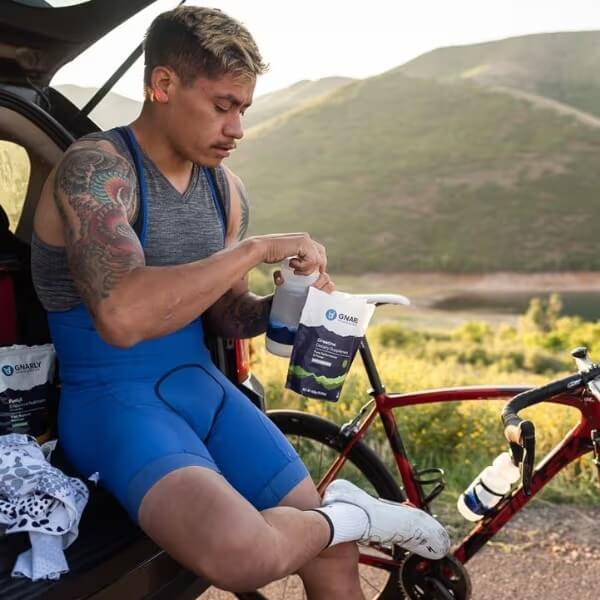
Overall, this is a great creatine monohydrate for teens. As for the disadvantages, there are several reviews about not very good solubility. If you do not like zip locks, this form of packaging may not be the best and most inconvenient. There are also several reports of not very good solubility.
This is pure creatine monohydrate without additional ingredients. It is tested for contaminants and banned substances with NSF Certified for Sport®.
Positives:
Could be better:
4. Optimum Nutrition Micronized Creatine
- Form: Powder
- Type: Monohydrate (Micronized)
- Other Ingredients: None
- Price per Serving (for 5 g): ~$0.57
- Servings per Container (for 5 g): 60 or 120 servings
- Company Founded: 1986
- Recommended by Athletes: Nick Cheadle, Evan Johnson, Tom Bramwell
Next in our ranking of the best creatine for teens is the bestseller Micronized Creatine from the well-known Optimum Nutrition brand.
It is micronized creatine with good solubility in liquid. This product is certified by Informed Choice and available in both powder and capsule form. However, keep in mind that the powder form is suitable for vegans, while the capsule form contains gelatin and is therefore not a vegan product.
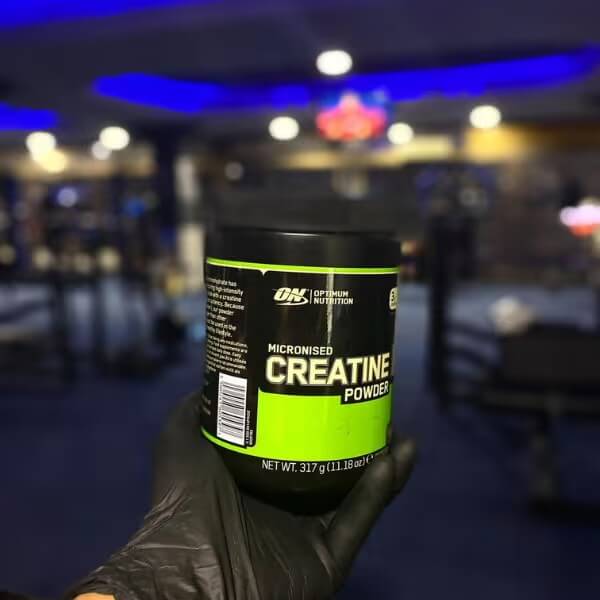
This product does not come with a measuring spoon, so if you are choosing your first creatine, you will need to use a teaspoon to measure out your serving.
The powder form is suitable for vegans, while the capsule form contains gelatin and is therefore not a vegan product.
Positives:
Could be better:
5. Sunwarrior Creatine Monohydrate
- Form: Powder
- Type: Monohydrate (Non-Micronized)
- Other Ingredients: None
- Price per Serving (for 5 g): ~$0.5
- Servings per Container (for 5 g): 60 servings
- Company Founded: 2008
- Recommended by Athletes: Thomas DeLauer, Molly White
Creatine from Sunwarrior has been tested by Informed Choice, although Informed Sport and NSF Certified for Sport® are stricter certification programs and therefore better suited for elite young athletes.
Like any product in this rating, there is nothing special about this creatine - just pure monohydrate with a higher price per serving than the leader of this rating. Some users on Amazon noted that the measuring spoon is very large and holds about 10 g of creatine if filled to the edge of the spoon.
Therefore, if you need to measure 3 g or 5 g (the recommended daily amount of creatine), it is not very convenient, because you will have to measure by eye or turn on the kitchen scale every time.
Creatine from Sunwarrior has been tested by Informed Choice, although Informed Sport and NSF Certified for Sport® are stricter certification programs and therefore better suited for elite young athletes.
Positives:
Could be better:
6. NOW Sports Creatine
- Form: Powder
- Type: Monohydrate (Non-Micronized)
- Other Ingredients: None
- Price per Serving (for 5 g): ~$0.32
- Servings per Container (for 5 g): 45, 120 or 200 servings
- Company Founded: 1968
- Recommended by Athletes: Samantha Show, Kasey Brown
NOW Sports Creatine closes this rating because it loses to the rest of the products with its relatively poor solubility. You will also need a teaspoon to measure the serving, if you do not have a scoop left from another brand of creatine.
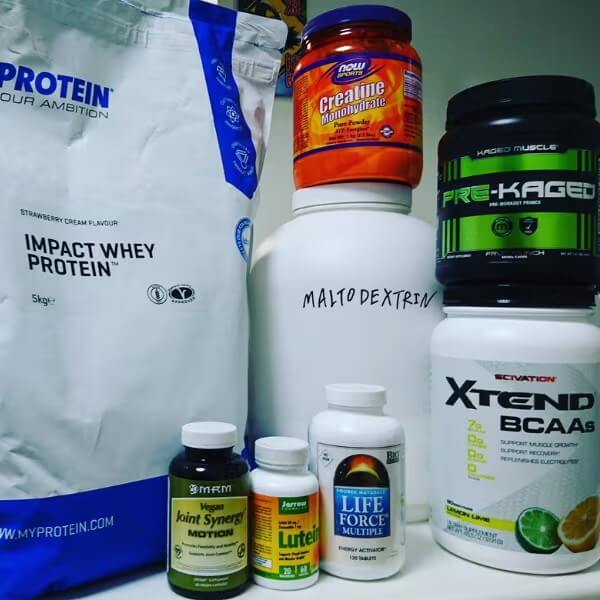
On the other hand, this product has the lowest cost per serving (along with Promix Creatine) and is available in both powder and capsule form. Capsule does not contain products of animal origin, because cellulose is used for its production. Therefore, regardless of the chosen form (powder or capsule), you are buying a vegan product.
The capsule of this creatine does not contain products of animal origin, because cellulose is used for its production.
Positives:
Could be better:
What Is Creatine?
Creatine is a non-protein amino acid compound that is naturally found in products of animal origin. Most of it is found in red meat and fish. Omnivores get about 1-2 g of creatine per day from food, another 1 g is synthesized inside our body - mainly by the liver and kidneys from the amino acids arginine and glycine.
About 95% of creatine is stored in skeletal muscle, with the rest in other tissues such as the brain and heart.
Creatine serves as a high-energy source to fuel cellular metabolism. But since its reserves in muscles are not saturated even on an omnivorous diet, it is recommended to take this compound in the form of a dietary supplement to optimize reserves.
Saturation of creatine reserves in skeletal muscles helps to enhance exercise capacity and training adaptations. This allows us to improve the quality of training and perform a larger volume of work over a series of sets, which ultimately leads to greater gains in overall athletic performance, as well as in strength and muscle mass.
Tips From the Champ
Creatine has been studied in over 1,000 trials and has a good safety profile, at least in healthy people without kidney disease or kidney dysfunction. Consult with a doctor, do not buy creatine without recognized third party testing, follow dosage recommendations, and remember that a balanced diet, smart training and adequate recovery are paramount to your success in fitness and sports. Any dietary supplement is just a small cherry on the cake.
Olympic Weightlifting Champion
Is Creatine Safe for Teens?
Since the early 1990s, creatine has been studied in over 1,000 trials, and the only side effect consistently reported in the literature is weight gain. Long-term studies using creatine for up to 5 years at dosages ranging from 0.3 g/kg/day to 0.8 g/kg/day have demonstrated not only a good safety profile of creatine, but also health benefits.
It is interesting to note that creatine was studied in clinical pediatric populations, in children born with creatine deficiency syndrome. It is characterized by the inability to synthesize creatine, which in turn leads to low reserves of creatine and phosphocreatine in skeletal muscles and brain.
This disorder is characterized by a number of symptoms, from speech delay to epilepsy and other problems. Therefore, creatine is even used as a therapeutic agent for many disorders.
There was a long-standing concern due to creatine's potential role as a precursor for the formation of carcinogenic heterocyclic amines. However, recent data suggests that creatine supplementation is unrelated to the formation of these harmful compounds.
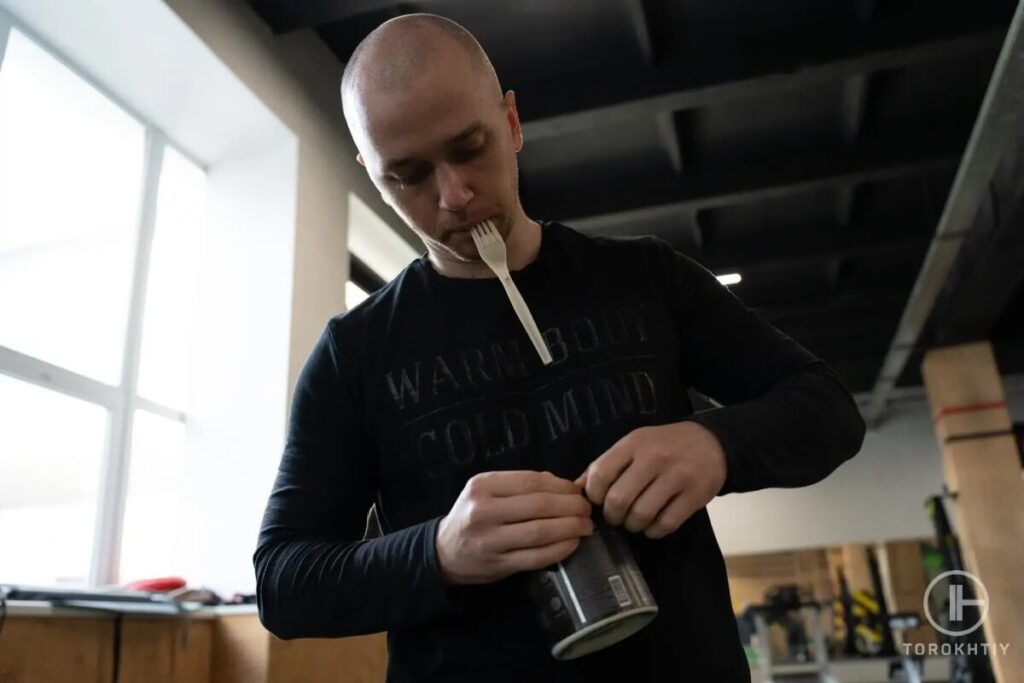
And yes, creatine is safe for the kidney function of healthy people when used in recommended dosage in the form of most studied monohydrate. On the other hand, it may be better to refrain from creatine use in case of pre-existing kidney disease or impaired kidney function.
Manufacturers state on their product labels that people under the age of 18 should not take this supplement. However, it is worth understanding that this is mainly a legal precaution intended to insulate manufacturers from legal liability. This warning is not proof that creatine is harmful.
On the contrary, studies show that creatine monohydrate is well-tolerated and safe for healthy individuals regardless of age. In general, International Society of Sports Nutrition position states that creatine can be considered an acceptable supplement for teenagers, but only under the following conditions:
- If a teenager plays sports at a serious competitive level and is under the supervision of professionals,
- If a teenager eats a balanced diet, which is already optimized to improve athletic performance (remember that creatine can only be seen as the icing on the cake, not the cake itself),
- If the teenager does not exceed the recommended dosages (which is 3-5 g per day) and is aware of the appropriate use of creatine.
What Should Teenagers Pay Attention to When Buying Creatine?
There are 3 key factors to consider when choosing creatine, especially for teenagers. We will consider them below.
Tip #1 - Choose Monohydrate
The most studied, most effective and safest form is creatine monohydrate. Other forms do not have better bioavailability or efficacy, and are less well studied regarding the safety profile. Therefore, it is better to stick with the proven monohydrate.
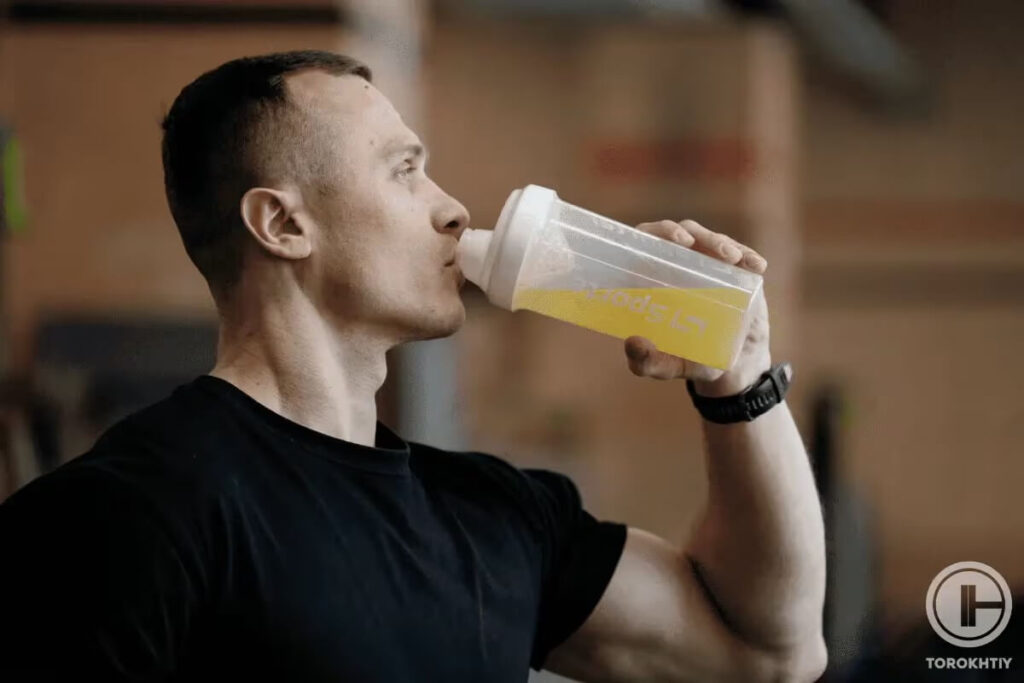
Tip #2 - If Possible, Choose Creapure®
Unfortunately, only some manufacturers use Creapure® from the German manufacturer AlzChem, which is 99.9% pure creatine without contaminants. Therefore, if this creatine is available for sale, give it first preference.
At the same time, during manufacturing of creatine from China may be used other starting materials, less strict control and inadequate filtration methods. Higher levels of heavy metals and other contaminants from Chinese creatine have previously been reported.
This does not mean that other creatine monohydrate (not Creapure®) contains contaminants, but it is something to be aware of, especially for products that have not been tested by a recognized third party.
Tip #3 - Choose Supplement With Third Party Certification
Certification from internationally recognized third parties minimizes possible risks regarding the content of heavy metals and prohibited substances.
That is why, as a key requirement for the best creatine for teenager, we have chosen for this ranking only products with certification from NSF Certified for Sport® and Informed Sport / Choice (although Informed Sport is a more desirable option than Informed Choice).
How Not to Fall For Marketing Tricks When Choosing Creatine?
The main thing to know in order not to fall for the marketing tricks is that there is no form of creatine that has better bioavailability or efficacy than creatine monohydrate. That's all.
For example, some manufacturers try to justify the other forms of creatine claiming better bioavailability, ignoring the fact that creatine monohydrate is already absorbed by >99%!
FAQ
Is Creatine Legal to Use? Is It а Drug?
No, it is not a drug and it is legal to use. Сreatine has a completely different chemical structure than anabolic steroids and is not banned by the World Anti-Doping Agency, the International Olympic Committee (IOC), or the NCAA.
However, if you buy this supplement from a little-known manufacturer, especially without third-party certification, there is a risk that the product, in addition to creatine itself, may contain some prohibited substance as an undeclared ingredient.
Is Creatine Safe for Teens?
Studies show that when used in recommended doses creatine monohydrate is safe for healthy individuals regardless of age. However, we recommend that teenagers consider taking creatine only under the supervision of a doctor.
Conclusion
Creatine has been studied in over 1,000 trials and has a good safety profile, at least in healthy people without kidney disease or kidney dysfunction.
Consult with a doctor, do not buy creatine without recognized third party testing, follow dosage recommendations, and remember that a balanced diet, smart training and adequate recovery are paramount to your success in fitness and sports. Any dietary supplement is just a small cherry on the cake.
As for the best creatine for teens, we recommend Creatine by Promix. How do you like this rating? Would you add another product to it if this rating could be expanded?
Also read:
- Best Affordable Creatine
- Best Creatine for Beginners
- Best Creatine for Skinny Guys
- Best Creatine for Weight Loss
- Best Creatine for Women
- Best Vegan Creatine Supplement
- Creatine Capsules or Creatine Powder
- What Happens When You Stop Taking Creatine
- Bcaa and Creatine Together
References:
- Analysis of the efficacy, safety, and cost of alternative forms of creatine available for purchase on Amazon.com: are label claims supported by science? // ScienceDirect: https://www.sciencedirect.com/science/article/pii/S2405844022034016
- Bioavailability, Efficacy, Safety, and Regulatory Status of Creatine and Related Compounds: A Critical Review // MDPI: https://www.mdpi.com/2072-6643/14/5/1035
- International Society of Sports Nutrition position stand: safety and efficacy of creatine supplementation in exercise, sport, and medicine // National Library of Medicine: https://www.ncbi.nlm.nih.gov/pmc/articles/PMC5469049/
- Safety of Creatine Supplementation in Active Adolescents and Youth: A Brief Review // National Library of Medicine: https://www.ncbi.nlm.nih.gov/pmc/articles/PMC6279854/
- Common questions and misconceptions about creatine supplementation: what does the scientific evidence really show? // National Library of Medicine: https://www.ncbi.nlm.nih.gov/pmc/articles/PMC7871530/
- Is It Time for a Requiem for Creatine Supplementation-Induced Kidney Failure? A Narrative Review // MDPI: https://www.mdpi.com/2072-6643/15/6/1466
- Creatine // Australian Sports Commission: https://www.ais.gov.au/nutrition/supplements/group_a#creatine
- Creatine Use in Sports // National Library of Medicine: https://www.ncbi.nlm.nih.gov/pmc/articles/PMC5753968/
Why Trust Us?
With over 20 years in Olympic Weightlifting, our team does its best to provide the audience with ultimate support and meet the needs and requirements of advanced athletes and professional lifters, as well as people who strive to open new opportunities and develop their physical capabilities with us.
All products we select are primarily approved and tested by the Olympic Weightlifting Champion Oleksii Torokhtiy. Under his guidance, we provide honest and reasonable assessments of the products we review by checking their characteristics, packaging, design, comfort and durability features, and general product rating. We select products from only high-quality and trusted sports brands, thus vouching for their quality.
The product testing process is described in more detail here
Author: Oleksandr Maksymenko
Certified Sports Nutritionist,
MSc Sports Dietetics
Specializing in: Weight management, Fitness / Sports nutrition
Oleksandr is a professional fitness nutritionist certified by the Fitness Professional Association (FPA). He follows the principles of evidence-based dietetics and fosters a healthy relationship with food in his clients, ensuring there are no strict prohibitions on their favorite foods or frequent lapses. His primary goal is not only to achieve results for you but also to sustain them over the long term, all while enjoying tasty and delicious food.
If you have any questions/suggestions/any other inquiries considering product reviews, you can reach out to us via email – [email protected]

